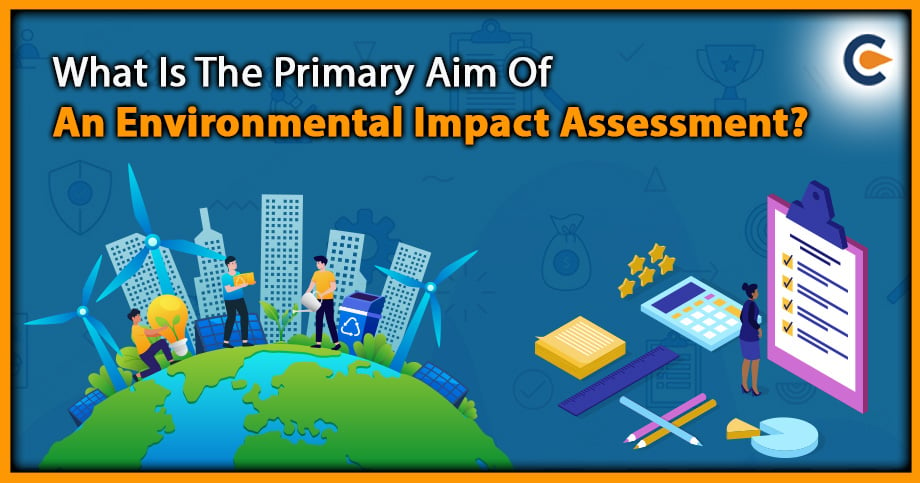The primary aim of environmental impact assessment (EIA) is to evaluate the potential environmental impacts of a proposed project or development before it is carried out. The goal of EIA is to identify, predict, and assess the potential impacts of the proposed project on the environment, including its natural resources, ecosystems, and human health, as well as social, cultural, and economic factors. By conducting an EIA, decision-makers can better understand the potential consequences of the proposed project and use this information to make informed decisions about whether or not to proceed with the project and if so, how best to minimise or mitigate any severe effects on the environment and surrounding communities. Ultimately, the primary aim of EIA is to promote sustainable development by ensuring that proposed projects are designed & implemented to minimise negative impacts on the environment and maximise positive benefits for the local community and the wider society.
What is Environment Impact Assessment (EIA)
Environmental impact assessment is a process of evaluating the potential impacts of a proposed project, plan, or policy before it is implemented. The process typically involves a series of steps, including scoping, baseline studies, impact assessment, and the development of mitigation measures. The process involves engaging with stakeholders, including local communities, non-governmental organisations, and government agencies, to gather information about the proposed project’s potential impacts and incorporate their feedback into the decision-making process.
EIA is used to inform decision-making by regulatory agencies, project developers, and other stakeholders and is often required by law or regulation. EIA aims to promote sustainable development by ensuring that proposed projects are designed and implemented in a manner that minimises negative impacts on the environment and maximises positive benefits for the local community and the wider society.
Regulations Governing Environmental Impact Assessment
In India, the EIA process is governed by the Ministry of Environment, Forests, and Climate Change (MoEF&CC) under the Environment (Protection) Act, 1986[1]. Some several guidelines and policies govern the EIA process in India, including the National Biodiversity Act, of 2002, National Forest Policy, 1988, and the National Action Plan on Climate Change 2008.
The EIA Process Is Regulated By A Set Of Legal Provisions, Including:
- Environmental Impact Assessment Notification, 2006: This provides a legal framework for the EIA process in India. It outlines the project category that require an EIA, along with the process for conducting EIA, and format for submitting a report.
- Environmental Clearance (EC) Process: It is mandatory for projects requiring EC to submit an EIA report to the MoEFCC or the State Environmental Impact Assessment Authority for clearance.
- Public Consultation Process: The EIA Notification requires that public consultation for specific categories of projects. This process involves the review of the EIA report by the public and the opportunity for public feedback and comments.
- Expert Appraisal Committee (EAC): The Expert Appraisal Commitee is a body appointed by SEIAA or MoEFCC, to evaluate EIA reports. The Expert Appraisal Commitee provides recommendations on whether to grant EC to a project based on the findings of the EIA report.
- Monitoring and Compliance: The EIA Notificationalso requires that project proponents submit regular EIA reports on the project’s compliance with the environmental clearance conditions.
Stages of Environmental Impact Assessment
The EIA process in India is made up of the following phases:
- Screening: The first stage of EIA in which it is determining whether the proposed project requires an EIA and the level of assessment that is necessary.
- Scoping: During this step, the important issues and impacts that should be examined further are identified. This stage also establishes the study’s boundaries and time frame.
- Impact Analysis: This step of EIA identifies and forecasts the possible environmental and social impacts of the proposed project, as well as assesses its significance.
- Mitigation: In this level of the EIA process, actions are recommended to reduce and avoid the potential negative environmental repercussions of development activities.
- Reporting: At this point, the EIA results are presented to the decision-making body and other interested parties in the form of a report.
- EIA Review: It assesses the adequacy and efficacy of the EIA report and provides decision-making information.
- Decision-Making: It determines if the proposal should be rejected, approved, or modified further.
- Post-Monitoring: This stage begins after the project is commissioned. It ensures that the project’s consequences do not exceed regulatory limits and that mitigation measures are implemented in the way stated in the EIA report.
Conclusion
An Environmental Impact Assessment report is an essential tool for assessing and managing a project’s environmental and social impacts before it starts. The EIA process ensure that projects are implemented to minimise negative effects and maximise benefits. The regulations governing the process vary by jurisdiction. Still, in general, the process is regulated by legal provisions, guidelines & policies that are designed to ensure that the process is transparent, participatory & scientifically rigorous. The whole process is critical in ensuring sustainable development and protecting environment and health of humans. It is highly recommended that a person looking for EIA report should seek expert advice to get a hassle-free experience in the extensive process.
Also Read:
Importance Of Environmental Impact Assessment (EIA) In India











